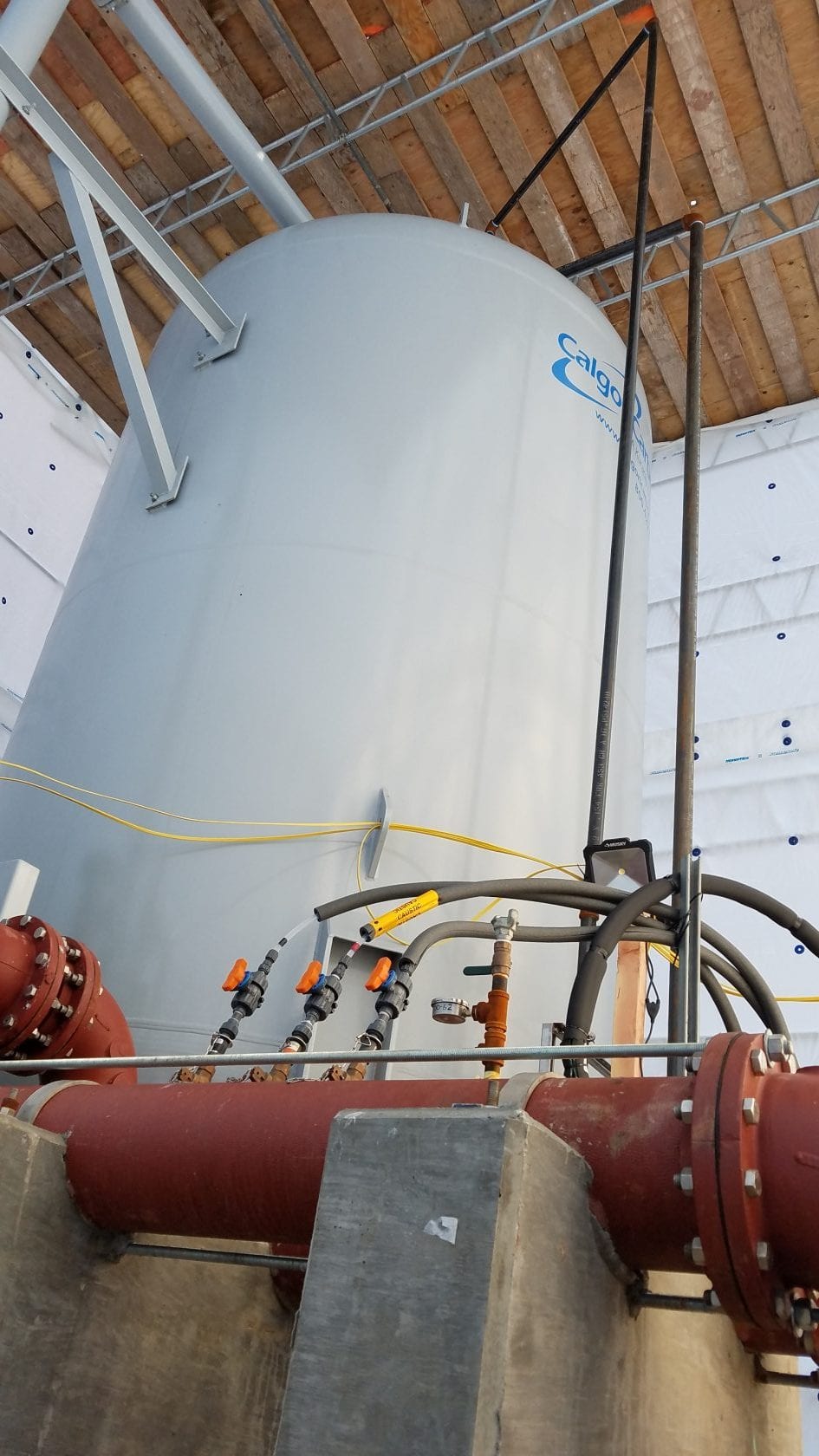WESTFIELD – Westfield was among 20 communities awarded funds from the Baker-Polito Administration this week to support efforts to address elevated levels of per- and polyfluoroalkyl substances (PFAS) in drinking water.
Westfield’s Department of Public Works’ Water Division received a reimbursement of $180,495 for completed planning and design. The city’s wells 1 and 2 were contaminated with PFAS and treated with granular active carbon filters and temporary filtration structures. Permanent filtration is ongoing.
“Thanks to Westfield DPW’s hardworking group of water professionals we are lucky to have been awarded this grant for a second time. It shows how regulatory agencies view Westfield’s proactive leadership on PFAS,” said Interim DPW Director Francis Cain following the announcement.
When asked about the reimbursement from the state, Mayor Donald F. Humason Jr. said he got the news Monday from Heather Stayton, DPW systems engineer.
“I don’t think it’s unexpected at all — the Water Department planned on applying for it and received it. If anything, it’s a nice addition for the Water Works,” Humason said.
“It means we’re going out and getting money from other sources, and not just asking the water ratepayer and taxpayers to pay for it,” he added.
Humason said he is about to ask the Westfield City Council for another bond of $12 million for the permanent structure on Wells 1 and 2. “We have a state revolving guarantee at zero percent. In order to get that money we have to bond for it to get it from the state at zero percent,” he said. “I applaud the water department, I’m glad they applied and got the grant. Every bit helps the water ratepayer in the city,” Humason said.
The grants were awarded to water systems serving Abington and Rockland, Cambridge, Chelmsford, Cohasset, Danvers and Middleton, Dudley, Hopedale, Littleton, Mansfield and Foxborough, Millis, Natick, North Attleborough, Sudbury, Topsfield, Westborough, Westfield, and Woburn for expenses related to the design and planning of treatment systems that protect drinking water against PFAS.
“PFAS compounds present a significant risk to public health, and these grants will help public water suppliers as they perform the critical work necessary to protect the health and safety of their consumers,” said Gov. Charlie Baker in a written statement. “Our Administration is proud to build on our efforts to address PFAS across the Commonwealth by providing this assistance to communities dealing with contamination.”
“Cities and towns work hard to protect local water resources, and these grants provide much-needed capital to support the design and planning of essential water treatment systems,” said Lt. Gov. Karyn Polito in a press release. “As municipalities work to address PFAS contamination, our Administration will support these efforts and help to ensure that drinking water throughout Massachusetts is safe, clean and healthy.”
The grants were funded as part of $8.4 million made available as part of $28.4 million secured by the Baker-Polito Administration in two supplemental budgets for water infrastructure and PFAS testing. Through the supplemental budget, $20 million was appropriated to the Commonwealth’s Clean Water Trust, providing financing that can be used by communities to address contamination issues.
PFAS compounds are a family of chemicals widely used since the 1950s to manufacture common consumer products and used in some legacy fire-fighting foams. Drinking water may become contaminated if PFAS deposited onto the soil seeps into groundwater or surface water. PFAS have been linked to a variety of health risks, particularly in women who are pregnant or nursing, and in infants. Westfield’s northside wells were contaminated with PFAS related to fire-fighting foam used at Barnes Air National Guard base.
Amy Porter contributed to this story.








